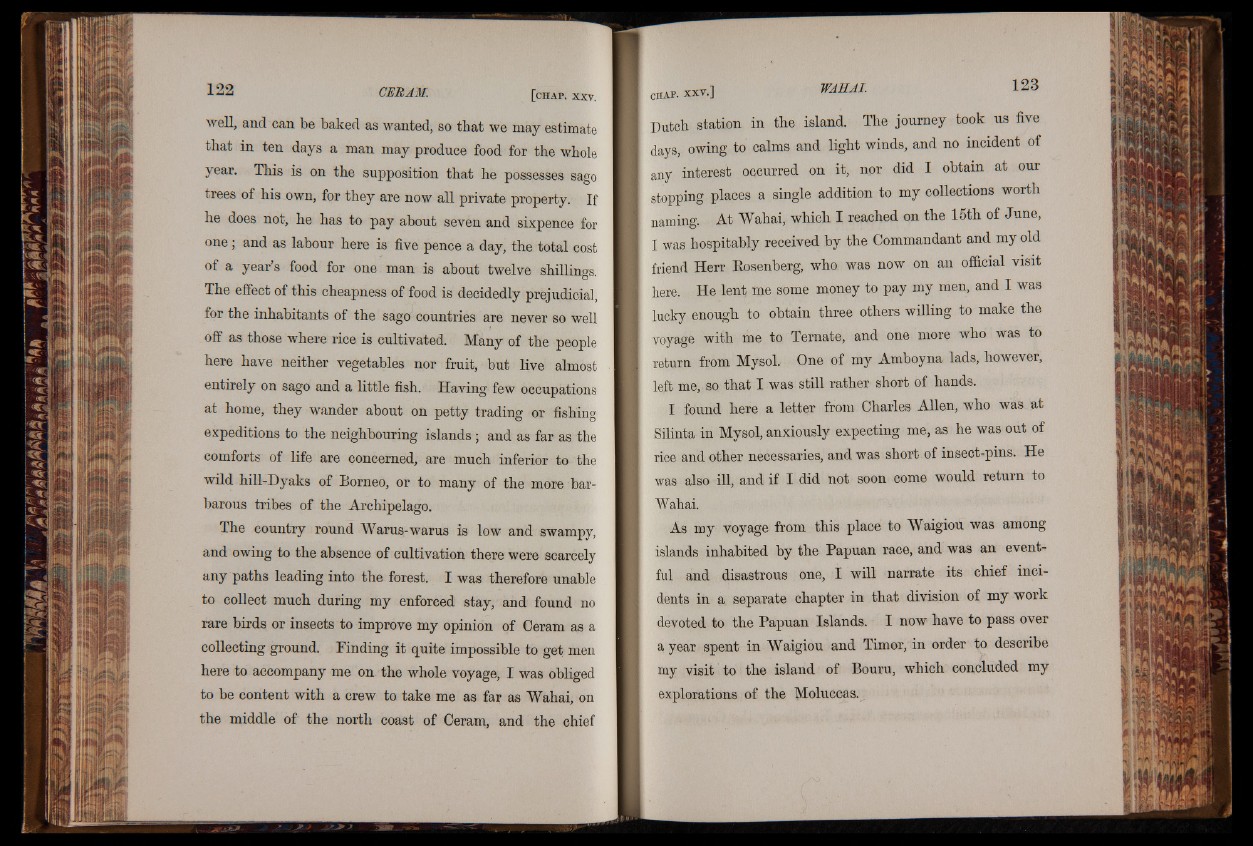
122 CERAM. [ c h a p . xxv.
well, and can be baked as wanted, so that we may estimate
that in ten days a man may produce food for the whole
year. This is on the supposition that he possesses sago
trees of his own, for they are now all private property. If
he does not, he has to pay about seven and sixpence for
one; and as labour here is five pence a day, the total cost
of a year’s food for one man is about twelve shillings.
The effect of this cheapness of food is decidedly prejudicial,
for the inhabitants of the sago countries are never so well
off as those where rice is cultivated. Many of the people
here have neither vegetables nor fruit, but live almost
entirely on sago and a little fish. Having few occupations
at home, they wander about on petty trading or f i sh i n g
expeditions to the neighbouring islands ; and as far as the
comforts of life are concerned, are much inferior to the
wild hill-Dyaks of Borneo, or to many of the more barbarous
tribes of the Archipelago.
The country round Warus-warus is low and swampy,
and owing to the absence of cultivation there were scarcely
any paths leading into the forest. I was therefore unable
to collect much during my enforced stay, and found no
rare birds or insects to improve my opinion of Ceram as a
collecting ground. Finding it quite impossible to get men
here to accompany me on the whole voyage, I was obliged
to be content with a crew to take me as far as Wahai, on
the middle of the north coast of Ceram, and the chief
c h a p . x x v . j mm* i 2 3
Butch station in the island. The journey took us five
days, owing to calms and light winds, and no incident of
any interest occurred on it, npr did I obtain at our
stopping places a single addition to my collections worth
naming. At Wahai, which I reached on the 15th of June,
I was hospitably received by the Commandant and my old
friend Herr Bosenberg, who was now on an official visit
here. He lent me some money to pay my men, and I was
lucky enough to obtain three others willing to make the
voyage with me to Ternate, and one more who was to
return from Mysol. One of my Amboyna lads, however,
left me, so that I was still rather short of hands.
I found here a letter from Charles Allen, who was at
Silinta in Mysol, anxiously expecting me, as he was out of
rice and other necessaries, and was short of insect-pins. He
was also ill, and if I did not soon come would return to
Wahai.
As my voyage from this place to Waigiou was among
islands inhabited by the Papuan race, and was an eventful
and disastrous one, I will narrate its chief incidents
in a separate chapter in that division of my work
devoted to the Papuan Islands. I now have to pass over
a year spent in Waigiou and Timor, in order to describe
my visit to the island of Bouru, which concluded my
explorations of the Moluccas.